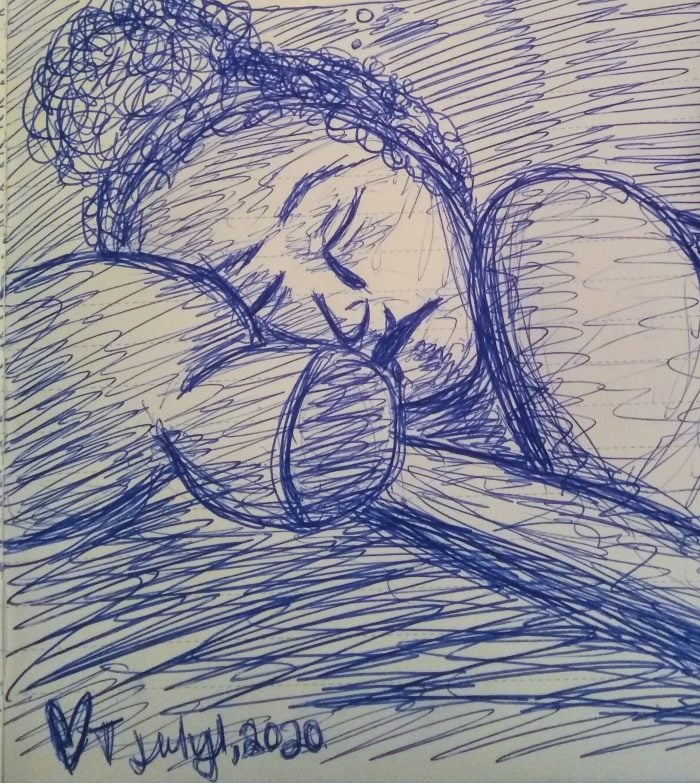Thirty-one years around the sun and my grown-up self is afraid to be alone, afraid to commit, and also sleeps with a stuffed dog requested for this year’s birthday, specifically for my inner child.
This is ironic because the intention behind my upbringing was for me to be independent.
“You don’t need anyone. You can do this yourself. I won’t always be around,” I regularly was told.
True. But little did I know that I would face the reality of those warnings before I was ready. Welcome, childhood abandonment.
If you’ve experienced childhood abandonment, neglect, or abuse, you’ve probably noticed that the spaces where you’re supposed to be guided as a child were left empty. It’s likely that you know what it’s like to be “thrown into the water, not knowing how to swim.”
Being put in this position often impacts our ability to ask for, accept, or keep help. Why? Because we’re ashamed of needing it. This programmed shame causes us to refuse connection with helpful and healthful others and instead tends to draw us toward the wrong types of people. “The wrong types” meaning others who are stuck in their pain bodies and who don’t know how to respect—nonetheless help—us because often meet us where we are.
Our parents, from birth, are our primary source of love. Without that source of love, we can find ourselves accepting anything that feels close to it. This is why adult children of abuse, neglect, and abandonment often turn to drugs, alcohol, and sex to cope—to feel anything other than what they truly feel.
Our neglect or abuse is a large reason we find ourselves in abusive relationships with ourselves and others.
“The child […] doesn’t stop loving its parents, it stops loving itself.” ~ Shahida Arabi, Becoming the Narcissist’s Nightmare: How to Devalue and Discard the Narcissist While Supplying Yourself
Sometimes, we feel guilty for the position we were put in. We tell ourselves that if we would have been better, more lovable, more valuable, they wouldn’t have left us. I’ve been told this, among other things. And so, we take responsibility for the actions of those who have hurt us either emotionally or physically.
Fear of repeated abandonment can leave us either clinging to relationships or refusing to let them in. We feel ashamed of our truth so that we can protect the parent we love and the image others see of us—a toxic coping mechanism.
I know because I’ve found myself doing all of the above at different times in my life as a result of my childhood trauma.
The love we have for our parents never goes away. That child is in there, wishing, craving, and hurting. Because of that love that we were born with, situations like these might make us defensive over the person who put us here.
No matter how little sense it makes to others, no matter how angry or hurt we are, those feelings come from a much deeper place: lack of the first love we ever needed.
Childhood abandonment, neglect, and abuse are traumatic experiences, whether we’d like to admit it or not. And as we grow, that child who didn’t get what they needed stays inside of us, screaming and crying and acting out. It keeps our grown-up selves feeling not so grown-up.
That is until we learn how to sit with it, feel with it, reparent it, and heal it.
So, what do you say—shall we grow up together?







Read 2 comments and reply